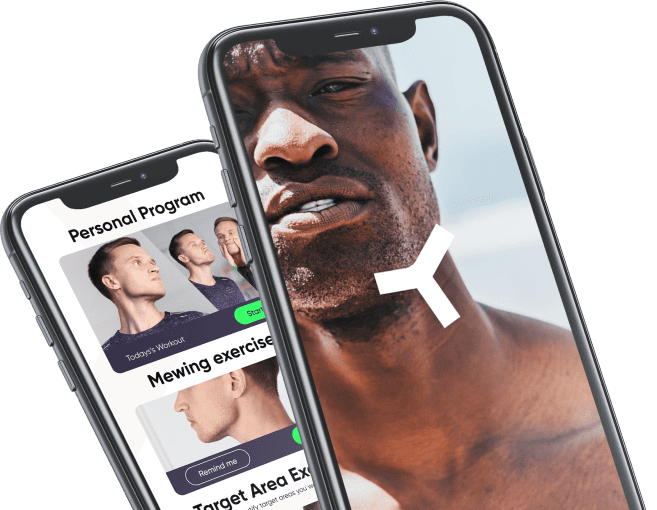
I am a heavy snorer, and I understand the difficulty many people face in admitting this. It’s a condition that can be disruptive, not just for the snorer, but for those around them as well. I’m unafraid to share this fact because I’ve found a promising solution— anti-snoring mouth pieces.
After extensive research and rigorous testing, I felt compelled to share my experience with oral anti-snoring mouthpieces. Countless nights of disrupted sleep led me to delve into research, testing numerous solutions and methods. I can confidently say that snoring mouthpieces have helped me to stop snoring. Chances are, they will help you too.
Key Takeaways
- Snoring results from factors like narrow airways, alcohol, obesity, and nasal blockages.
- Snoring types include nose-based, mouth-based, tongue-based, and palate-based.
- Mouthpieces, such as MADs and TRDs, effectively open the airway to reduce snoring.
- Mouthpieces prove effective for many but are not suitable for everyone due to specific health conditions.
- Side effects like jaw discomfort, tooth discomfort, and dry mouth are common but generally mild.
- Snoring mouthpieces, available without a prescription, offer a practical solution for heavy snorers.
Causes of Snoring
Snoring arises from various causes, affecting your quality of life. A narrow airway, often hereditary, limits airflow and leads to the noisy vibrations of snoring. Alcohol consumption relaxes throat muscles, further complicating the problem. Similarly, certain medications can have a sedative effect that exacerbates snoring.
| Cause | Impact on Quality of Life | Severity | Category |
| Narrow Airway | Disrupts sleep quality, affecting daily performance | Moderate | Physical Conditions |
| Alcohol Consumption | Strains relationships and sleep quality | Severe | Lifestyle Choices |
| Medication | This leads to a reluctance to treat other conditions due to snoring | Mild | Lifestyle Choices |
| Sleep Position | Results in less restful sleep, impacting daily life | Mild | Sleep-related Factors |
| Obesity | Often accompanies other health issues, complicating treatment | Severe | Physical Conditions |
| Weak Muscle Tone | Makes even a good night’s sleep feel insufficient | Moderate | Physical Conditions |
| Nasal Obstruction | Makes breathing laborious, adding to the misery | Moderate | Physical Conditions |
| Obscure Sleep Apnea (OSA) | Poses more severe health risks and impacts your well-being | Severe | Sleep-related Factors |
Sleep position plays a role too – lying on your back restricts the airway. Obesity adds extra tissue to the throat, making snoring more likely. Weak muscle tone in the throat and tongue also contributes to snoring. Nasal obstructions, whether seasonal allergies or anatomical issues, disrupt the airflow. Lastly, Obscure Sleep Apnea (OSA) presents a more severe form of snoring, often requiring medical intervention.
Types of Snoring
Snoring is not a uniform problem – it has different types that require specific attention. Nose-based snoring occurs when nasal passages are blocked, perhaps due to a cold or allergies. Mouth snoring arises from an open mouth during sleep, which changes the airflow. Tongue-based snoring happens when the tongue falls back into the throat, obstructing the airway. Palate-based snoring involves the soft part at the back of the roof of your mouth vibrating against the throat.
| Type of Snoring | Description and Linked Causes | Severity Indicators | Underlying Conditions |
| Nose-based Snoring | Occurs when nasal passages are blocked, perhaps due to a cold or allergies | Moderate | No |
| Mouth-based Snoring | Arises from an open mouth during sleep, which changes the airflow. Often related to nasal issues | Mild | Possible |
| Tongue-based Snoring | Happens when the tongue falls back into the throat, obstructing the airway. Linked to weak muscle tone, alcohol, or sedatives | Severe | Likely |
| Palate-based Snoring | Involves the soft part at the back of the throat vibrating during sleep | Severe | Likely |
Nose-based snoring often accompanies nasal obstructions. Mouth-based snoring is common among those who sleep with their mouth open due to nasal issues. Tongue-based snoring is usually related to weak muscle tone in the tongue and throat, which is exacerbated by alcohol or sedative medications. Palate-based snoring often correlates with a narrow airway and can be a telltale sign of OSA.
How Do Mouthpieces for Snoring Work?
Mouthpieces for snoring primarily come in two forms: mandibular advancement devices (MADs) and tongue-retaining devices (TRDs).
Mandibular advancement devices (MADs) work by holding the lower jaw, or mandible, in a forward position. This action stretches the muscles around the throat and elongates the oral airway.
The anatomical parts involved include the mandible, hyoid bone, and the genioglossus muscle—the primary muscle for tongue movement. By moving the mandible forward, MADs increase the space within the airway, reducing the risk of airway collapse and snoring.
These devices are particularly effective for mouth-based and palate-based snoring, which often occurs due to a constricted or narrow oral airway. MADs effectively counter causes like weak muscle tone in the throat and obesity by widening the airway.
Tongue-retaining devices (TRDs) take a different approach. These mouthpieces hold the tongue in place, preventing it from falling back into the throat. The tongue is suctioned into a bulb at the front of the device, avoiding any obstruction to the throat.
TRDs primarily interact with the tongue itself, but by doing so, they also affect the positioning of the genioglossus muscle. These devices are ideal for tongue-based snoring, where the tongue’s retraction is the primary culprit. They address causes such as alcohol consumption and certain medications that induce muscle relaxation.
How Effective Are Mouthpieces In General?
Research lends strong support to the effectiveness of mouthpieces for snoring and sleep apnea. A look into the relevant medical literature indicates that mouthpieces are promising for treating both habitual snoring and mild to moderate obstructive sleep apnea. Long-term oral appliances were also shown to reduce snoring rates in a time series analysis.
Further, sleep apnea mouth guards, a specific type of mouthpiece, improve daytime sleepiness, reduce snoring, and even lower blood pressure in sleep apnea sufferers. Lastly, these oral appliances address structural factors like a small lower jaw or a retracting tongue, thus opening the airway more effectively.
Studies broadly concur that mouthpieces can meaningfully reduce snoring and improve sleep quality in cases of mild to moderate sleep apnea. However, it’s crucial to emphasize that not all mouthpieces are the same and I have spent quite some time while searching for the best anti-snoring mouthpiece.
My own experience aligns closely with these scientific findings. Using a tongue-retaining device, I saw substantial improvements in my sleep quality and snoring patterns. The experience has not only improved my daytime productivity but also enhanced the quality of sleep for my partner.
When a Snoring Mouthpiece Should Not Be Used?
Mouthpieces are generally effective, but they aren’t a one-size-fits-all solution. You must consider certain factors that may render them unsuitable. Individuals with severe dental issues such as gum disease or loose teeth need to steer clear. Mandibular advancement devices, in particular, exert pressure on the dental structure and could worsen these issues.
Chronic nasal congestion presents another barrier. When the nose is blocked due to allergies or other issues, a mouthpiece could make snoring worse. The device would force you to breathe through your mouth, intensifying the problem.
Severe obstructive sleep apnea poses a high risk as well. In such cases, a mouthpiece isn’t enough. Comprehensive treatment from healthcare professionals is mandatory.
Temporomandibular joint disorder (TMJ) is an often-overlooked condition. Those who experience jaw pain or have a history of TMJ should avoid using these devices. The mouthpieces might exacerbate the jaw discomfort due to the way they reposition the mandible.
People with a pronounced overbite face difficulty with most snoring mouthpieces. The design of these devices does not accommodate the alignment of an overbite, leading to ineffective treatment and potential discomfort.
Choosing a quality mouthpiece is imperative for avoiding these issues. Opt for materials that are BPA-free and FDA-approved to ensure biocompatibility. The fit should be exact, neither too tight nor too loose, to maximize effectiveness without causing discomfort. A poorly fitting mouthpiece not only reduces effectiveness but may lead to oral issues like gum irritation or tooth movement.
To circumvent these problems without a dental visit, consider an adjustable device. Several mouthpieces come with adjustable settings that enable a better fit without professional intervention. Regular inspection for wear and tear will also contribute to an enduring, effective treatment.
What Are The Side Effects of a Snoring Mouthpiece?
It’s important to be aware that side effects can differ from person to person, and not everyone will experience them. Nonetheless, some common side effects must be mentioned.
Jaw Discomfort
The use of mandibular advancement devices can sometimes lead to jaw discomfort. These devices push the jaw forward, which may strain the jaw joints. This side effect is often mild and occurs less frequently as one becomes accustomed to the device.
Tooth Discomfort
Both types of snoring mouthpieces may cause tooth discomfort due to the pressure exerted on the dental structure. This side effect is generally mild but may be more noticeable during the initial period of use.
Dry Mouth
Dry mouth is another potential side effect, particularly when using tongue-retaining devices. These devices can restrict normal saliva flow, leading to dryness. It’s a relatively common but mild side effect that may diminish with regular use.
Final Verdict
Yes, snoring mouthpieces do work for heavy snoring. I’ve experienced it firsthand. They are effective in addressing various types of snoring, including tongue-based and palate-based snoring, which are often severe.
Contrary to popular belief, you don’t need a prescription for a snoring mouthpiece. This makes them more accessible and easy to incorporate into your sleep routine. It’s a straightforward yet effective way to combat snoring and improve your overall quality of life.



